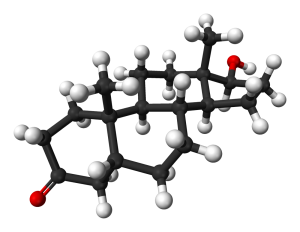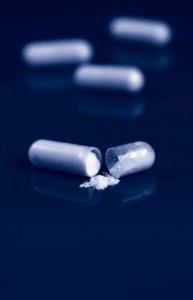 In part one of this article, I showed you the comment of Professor Gary Green on a recent study showing creatine to raise DHT levels in men. In this part I will show the response from the original authors Kathryn Myburgh, Johann van der Merwe and Naomi Brooks, all of the Department of Physiological Sciences, Stellenbosch University in Stellenbosch, South Africa.
In part one of this article, I showed you the comment of Professor Gary Green on a recent study showing creatine to raise DHT levels in men. In this part I will show the response from the original authors Kathryn Myburgh, Johann van der Merwe and Naomi Brooks, all of the Department of Physiological Sciences, Stellenbosch University in Stellenbosch, South Africa.
They firstly point out that they had no financial interest in the outcome of the study, but acknowledge that this should have been clearly stated in the study.
“There was no conflict of interest for any of the authors (no personal financial gain at the time of the study and before or after the study was completed; no appointment in any advisory capacity). The study was financed independently from any industry contract or donation, whether financial or in kind.”
They do, however, go on to state that even if they had been hired by an entity in the supplement industry then this still does not reflect a conflict of interests and that “Contract research does not imply that industry will have an influence on the research results.” I concur with this, otherwise anytime a supplement company brought out a study on their product then its validity would be questioned as much as the efficacy of the product that has no scientific study backing it. For supplement companies this can be a lose-lose situation.
The authors then address Green’s questioning of the materials used.
“The batch number and the expiry date were provided. The batch was analyzed by Quotient Bioresearch Ltd’s subsidiary company, HFL Sports Science Inc (Fordham, Cambridgeshire, United Kingdom). It owns 2 dedicated testing laboratories with extensive testing capability far beyond the testing of sports supplements. This relationship was clearly stated. Quotient Bioresearch Testing Laboratory is certified by the United Kingdom Accreditation Service (UKAS).”
They state that the materials were tested on several occasions for contamination and none was found. They then move onto what breaks down to semantics regarding their use of glucose as a placebo and the dose they used. This part of their response is neither particularly interesting nor important, so I’ll skip over it.
Their last valid point regarding the study, before discussing future testing practices for studies involving supplements (again, not interesting, and not relevant for the issue of creatine raising DHT so I’ll skip it) was in response to Green’s question about the timing of testing.
“All subjects were resident at the same Rugby Institute and were tested between 7.00 and 8.00 hours on each occasion, before any training. There was no deviation from this protocol for any subject.”
So fundamentally we have a well-controlled study showing that in men, creatine raises DHT with seemingly no effect on testosterone. With no other questions on the study, we have to accept that this is a bonafide potential effect of creatine usage. We are also not much closer to working out a mechanism behind this effect so we can only hope that there are studies being conducted at present time investigating it.
Source: Myburgh, Kathryn H PhD; van der Merwe, Johann MBChB; Brooks, Naomi E PhD. Reply. Clin J Sport Med. 2010 May;20(3): 220-222. Letter to the Editor.
